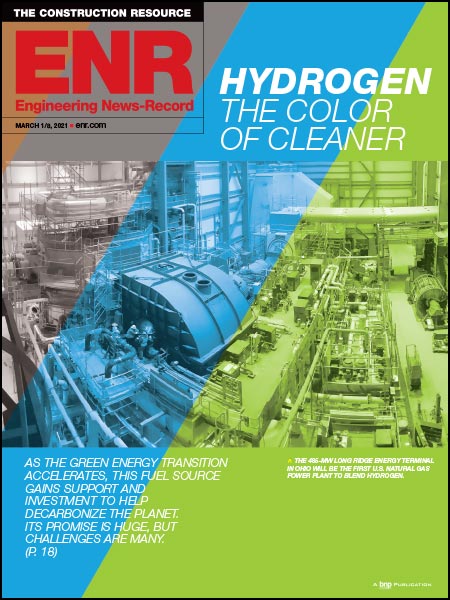Leaders from three military branches highlighted their services’ efforts to move toward net-zero-energy and water projects at bases and facilities around the country at a recent executive forum held in Washington, D.C.
But while the military is moving toward building more renewable and net-zero projects, they also said that every project needs to make sense from a mission and economic perspective.
Speaking at the Design Build Institute of America-Society of American Military Engineers' federal project-delivery symposium on Aug. 20, Mark Correll, deputy assistant secretary for environment, safety and infrastructure, U.S. Air Force, said presidential executive orders calling for net-zero projects “are intended to motivate. They are not intended to be ends unto themselves.”
He said all projects need to have a solid business case and be critical to the Air Force’s mission before the service will embark on a project or program of projects, a distinction that includes net-zero-energy and water projects, as well.
Paul Robinson, chief of the energy division for the U.S. Army Corps of Engineers’ Engineering and Support Center in Huntsville, Ala., said that, in 2011, the Army installed 17 pilot net-zero projects at various energy, water-supply or wastewater facilities on Army bases.
Since then, the Army has expanded the goal to include all new installations at military bases. “Our intent is to achieve that goal where practical and prudent,” Robinson said.
He added, “Ultimately, it’s about resiliency—how can we make a base more secure, more flexible and self-sustaining.”
Dave Curfman, director of public works for the Naval Facilities Engineering Command, said, “From the Navy’s perspective, we are pushing as far toward net zero as [is] fiscally responsible.”
He said the Navy has expanded both its emphasis on renewable projects, opening up a new renewable program office, and reliance on Energy Saving Performance Contracts (ESPCs).
Whereas, a few years ago, the Navy had a few individual ESPC projects, “we are now looking at whole-base approaches on ESPC projects,” Curfman said.
He said the Navy tries to take a holistic approach, integrating into project planning resiliency, energy security, energy efficiency and energy reliability.



Post a comment to this article
Report Abusive Comment